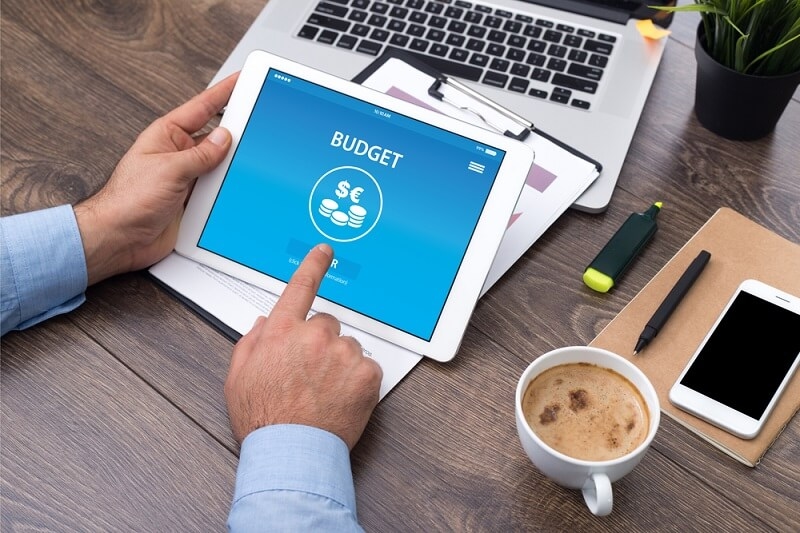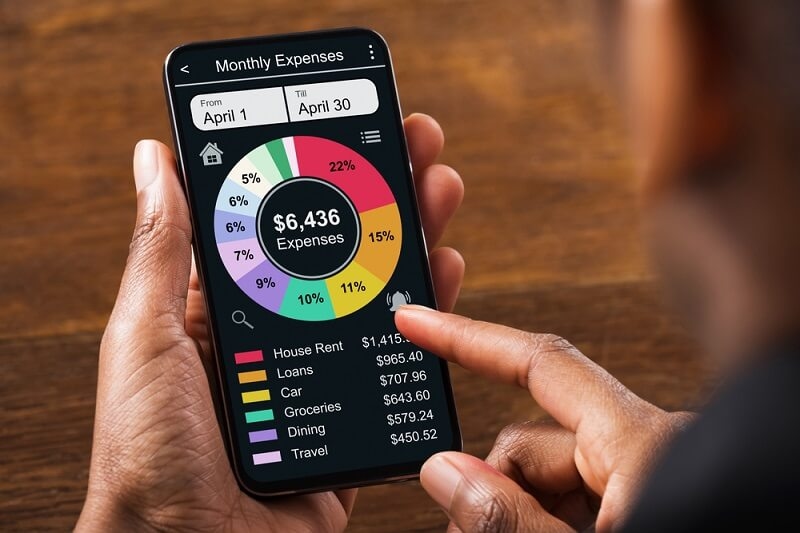
Managing money can be intimidating, especially if you're inexperienced or on a tight budget. Whether you're out of college, starting to develop a savings habit, or coming out of debt, having the right budgeting apps for beginners on a budget can help when first diving into money management.
In this guide, I break down the best free budgeting apps in the U.S.A., explore apps for tracking daily expenses, and highlight the best personal finance apps 2025 that are effective, easy-to-use, and intended for budgeting novices. We want to help you take control of your finances without losing money on everything that isn't useful to you.
When you're living on a tight budget, every dollar counts. Spreadsheets or notebooks may take too much time and are error-prone. That's why most rely on easy-to-use budgeting tools that do all the work and provide insights into spending patterns. Top budget apps for beginners are intuitive, secure, and free—if not, then affordably priced.
For someone beginning their financial journey, selecting the right app can:
Mint is still one of the most esteemed free budget tracking apps in the U.S. It connects to your bank accounts, tracks spending in real-time, and automatically categorizes the transactions.
Why It's Great for Beginners:
Goodbudget is the digital version of the envelope budgeting method, which has been around for ages. Goodbudget is one of the best apps you can use for tracking your daily spending, as it forces you to assign a use for every dollar you earn.
Features:
This app is designed for people who want to take an active role in learning how to practice being mindful about their money. It is one of the top beginner budgeting apps for tight budgets and is both easy to use and practical.
YNAB is a great personal finance app 2025, one of the perks of using YNAB is the educational resources and approach to money management. It does cost money to use, but offers a 34-day free trial period as well as differing rates for students.
What distinguishes it:
YNAB is great for users who are dedicated to learning to manage their money. Although the app does cost money to use, the disciplinarian approach to managing dollars separates YNAB from the competition and makes it one of the best budget apps for beginners who want to be guided, and encouraged.

If budgeting is too daunting for you, then PocketGuard is one of the top easy-to-use budgeting applications available. It determines how much "safe-to-spend" money you have after deducting bills and savings.
Features:
PocketGuard is particularly great for tracking daily spending, and its interface is newbie-friendly with quick results without a high learning curve.
Developed by personal finance guru Dave Ramsey, EveryDollar is a zero-based budgeting app whose interface is simple and easy to navigate.
Best for:
Although EveryDollar does offer a paid premium option, its free version still remains one of the best beginner budgeting apps for someone on a shoestring budget who likes clarity and organization.
Together, budgeting is even more efficient. Honeydue is specially designed for couples tracking shared expenses.
Key Features:
While a niche app, Honeydue should be included among the top budgeting apps for beginners, particularly for individuals dealing with shared expenses.
Zeta enables couples and families to budget together as well as maintain some finances apart. It's one of the best personal finance apps 2025 that celebrates the diversity of contemporary money management.
It's an excellent combination of automation and customization, making it perfect for couples living on a tight budget.
When choosing the best budgeting applications for tightwads on a budget, look for these features:
Among all of the best free budgeting applications in the United States, most of them cover all five areas, making them great apps for those who are new to budgeting.
Budgeting apps have benefits such as automated expense tracking, real-time financial visibility, visual dashboards that allow users to see spending, and opportunities for consistent saving by allowing individuals to stay on track with their goals. Limitations of budgeting apps may be related to linking the app to bank accounts, some features requiring a premium subscription, and the app may not meet the needs of beginners as the initial learning curve may be overwhelming.
Even the most effective budget apps for novices have compromises. The trick is to find one that fits your habits and financial aspirations.
Everyone budgets in their way. Ask yourself:
Answering these questions will help you narrow down the thousands of daily spending tracking apps and find the app that best fits your financial personality.
Budgeting is not just about tracking expenses, but rather creating sustainable habits around your finances. Starting with budgeting apps for beginners on limited budgets helps achieve consistency and accountability. These daily micro-actions eventually compound into larger wins — like reducing debt payments, saving more, or opting for a smarter purchase decision. The key is to stick with it and rethink your budget as your goals change.
It doesn't happen overnight, but you can master your finances because of the right tools. Choosing from the best budgeting apps for beginners on a budget gives you the power to take charge without the extra hassle.
Whether your taste is a visual interface, such as Mint, the design of YNAB, or a relationship-based app such as Honeydue, there is a great app out there that can assist you in budgeting better in 2025.
Most of the free budget tracking apps in the United States provide all the newcomer needs to thrive: simplicity, transparency, and real-time financial awareness. With the advancement of technology, we anticipate even more best personal finance apps 2025 that will be designed specifically to meet the needs of users seeking guidance and reassurance.
This content was created by AI